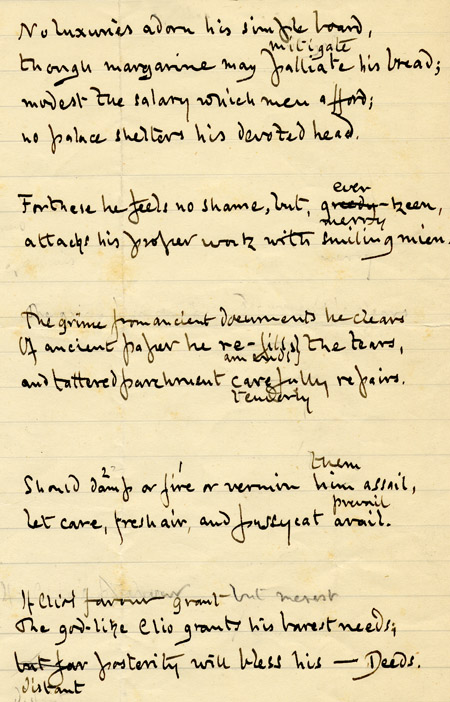Poetic Licence
Poetic licence
This month our choice is only a few lines written in the margin of a document rather than a whole document. Printed gaol calendars record the basic facts of each case to appear before the court, these are then annotated by the clerk with the verdict. In 1836 Joseph Wood was tried for the theft of a spoon. The clerk records that he was acquitted:

However, in the far right hand margin in tiny handwriting he writes a few lines of verse, which may give an indication of just what he thought of the outcome of the case 'Joe Wood, Joe Wood, You may be good, But there I want belief, Unless the spoon Fell from the Moon, You surely are the thief'. (QSR1836/51):

Official court records are one of the more unusual places to find poetry but it is not uncommon in other archives to find people turning to verse to express themselves. The literary merit is unfortunately often open to question!
Much of the serious poetry is of a religious nature, and, not surprisingly, much of it records particular events - the birth of a child or the death of a loved one. There is poetry for those in love - some of it telling cautionary tales. One volume which contains a combination of all of these things and more is the ciphering book of John Makeham of Milton Ernest. This contains rhymes entitled 'Composed for the conclusion of a Sunday School Festival', 'To a friend on the birth of his first child', 'Soliloquy while making a grave of a favourite dog named Rose', 'Composed at the particular request of a young man in love and presented to his mistress with the figure of a dove bearing a bleeding heart' and 'A caution - they that marry in haste repent at leisure (founded on facts)'. John copied out the poems, written by his brother Robert, during the winter of 1857-1858 and finished his task with an apology for the errors he had made. (Z1474/1)

Poems were often comments on everyday life. In an 18th Century Meppershall parish register we find a long poem about a spider and a violin (P29/1/7):

In a family collection we have a child's view of war time rationing (Z251/194):
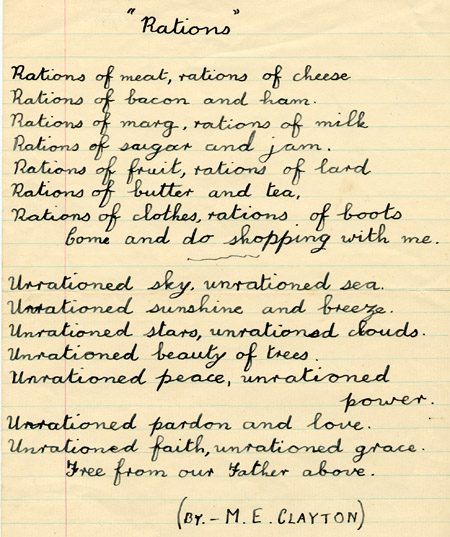
Some families seem to have had a particular fondness for writing poetry. The Orlebars, who owned Hinwick, wrote a lot of poetry and Mary Orlebar was extremely prolific with her pen – the first volume we have of her poems has the contemporary label 'volume 41'. The Newnham family of Woburn Sands were also poetical and their poetry covers a range of subject matter mostly celebrating family events. Having just recovered from the Olympics and looking forward to the Paralympics and the Bedford Sportsfest it seems only fitting to mention a poem commemorating the winning of running the ¼ mile in June 1895 (Z251/349):
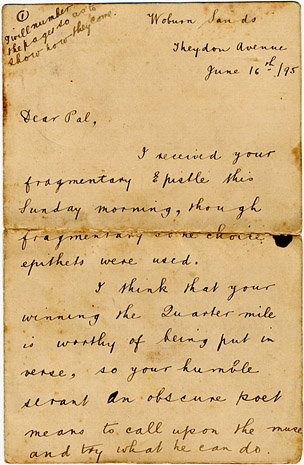
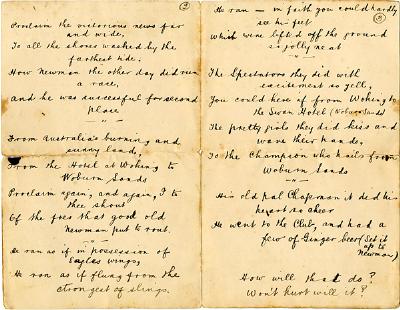
Poetry could be humorous or satirical and was commonly used as a weapon in election campaigns. This one dates from 1826 (BorBG10/2/113):
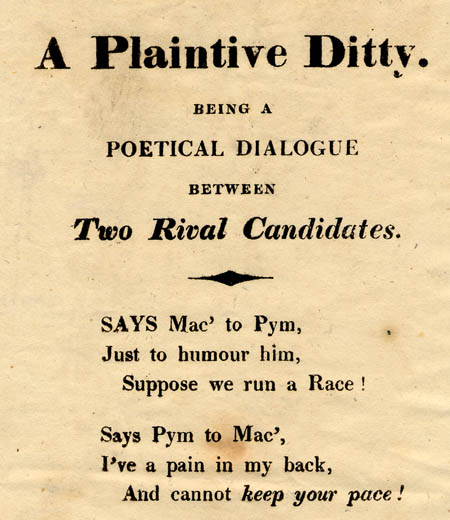
The world of work has a surprising poetic trend. Z1423/1 contains many poems on the need for temperance in order to be able to work, the W H Allen, Sons & Co collection has a poem in praise of the invention of a fan for ship engine rooms (AQ11/1/8):
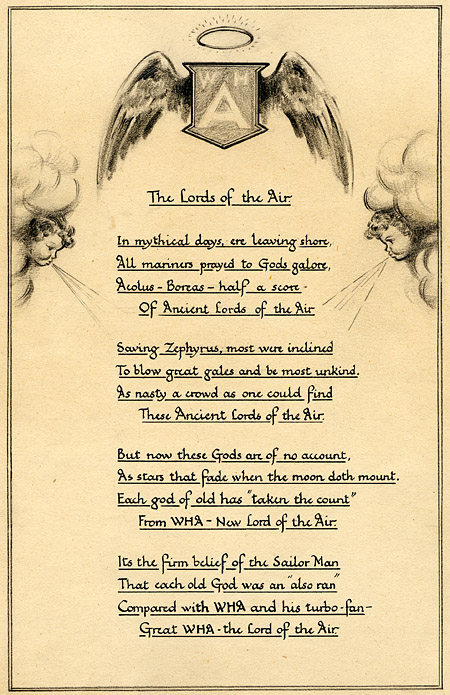
The Igranic collection a very long poem on the standard of productivity in the works (IG15/1).

For those of us in the Archives one particular poem means a lot. G H Fowler's poem The Archivist even used to hang on our workroom walls at one time reminding us of our lot in life (M13/4/19):
